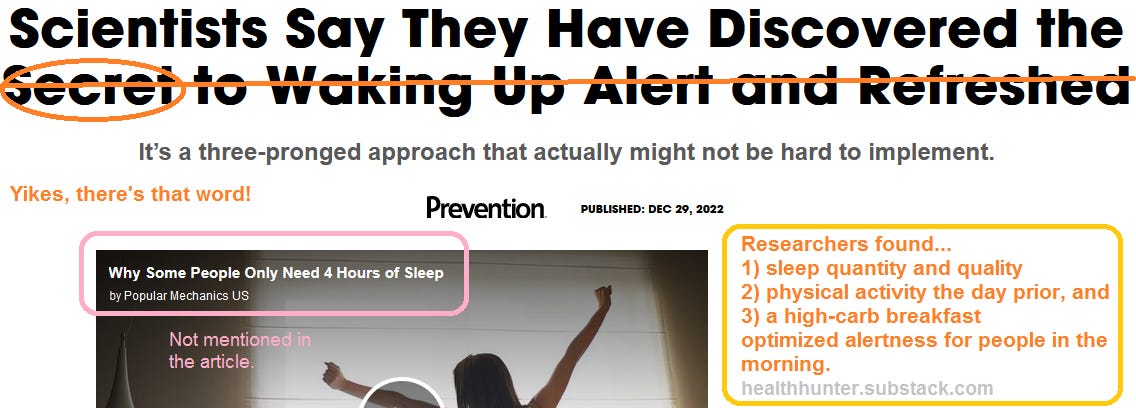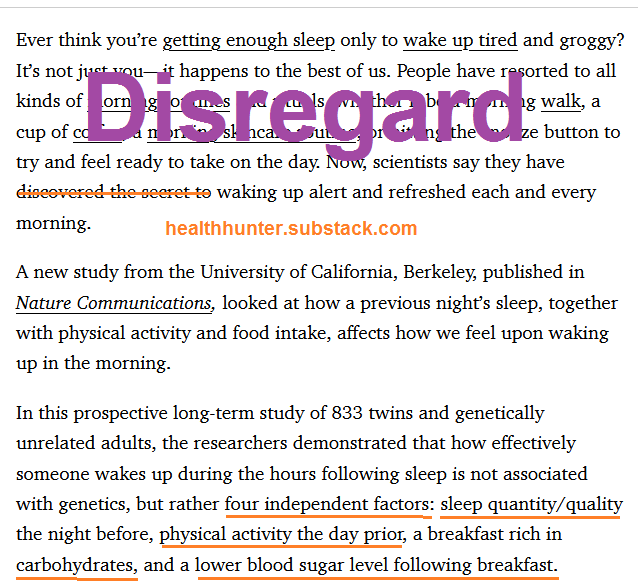Sleep: alert + refreshed
Summary: Researchers found…
sleep quantity and quality,
physical activity the day prior, and
a high-carb breakfast
optimized alertness for people in the morning.
In a press release from UC Berkeley, researchers explained… alertness is a three-part approach requiring substantial exercise the day before, sleeping longer and later into the morning day of, and eating a breakfast high in complex carbohydrates, but with limited sugar. The researchers also discovered that a healthy controlled blood sugar response after eating breakfast is key to waking up more effectively.
Beyond sleep, the second main feature predicting day-to-day changes in morning alertness was the intensity of physical activity the day before. In particular, researchers found that when the extent of an individual’s physical activity was comparatively greater the day prior, people felt more alert the next morning.
Third, researchers found that it was the unique composition of food that participants consumed for breakfast that explained their alertness levels. Compared to an example breakfast meal used in the study, which consisted of a moderate amount of fat, carbohydrates, and protein, when individuals consumed the “high carbs” breakfast, they experienced higher levels of alertness. In contrast, the “high protein” breakfast predicted a lower level of alertness following sleep, relative to the reference meal.
source: Prevention
Author’s note: You are how you sleep.
The American Sleep Apnea Association links sleep deprivation to moodiness and to losses in cognitive functions such as memory and concentration (ASAA 2017). Sleep deprivation can contribute to hyperactivity in children (ASAA 2017) and to obesity, heart disease, hypertension and diabetes. An article in The New Yorker reported broad impacts on the economy and public health: “In the workplace, sleep deprivation results in injuries and decreased productivity, which is thought to cost the U.S. 18 billion dollars each year. As many as 1.2 million car crashes—20% of the annual total—can be attributed to tired drivers, so it could be said that sleep deprivation causes thousands of deaths and injuries every year” (Groopman 2017).
Author’s note: Thank goodness your Tesla will alert you when it determines you are likely to sleep at the wheel.






